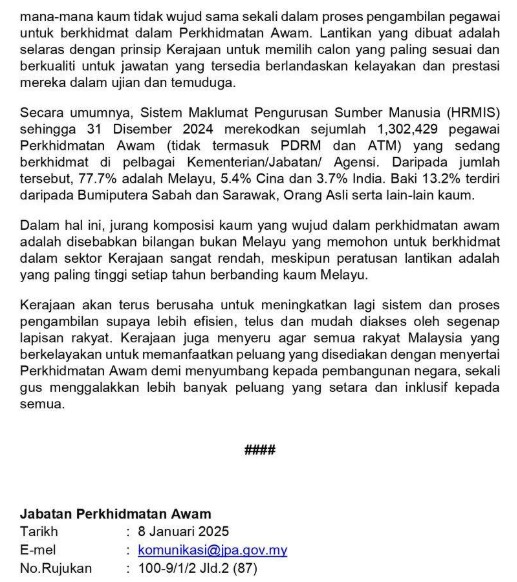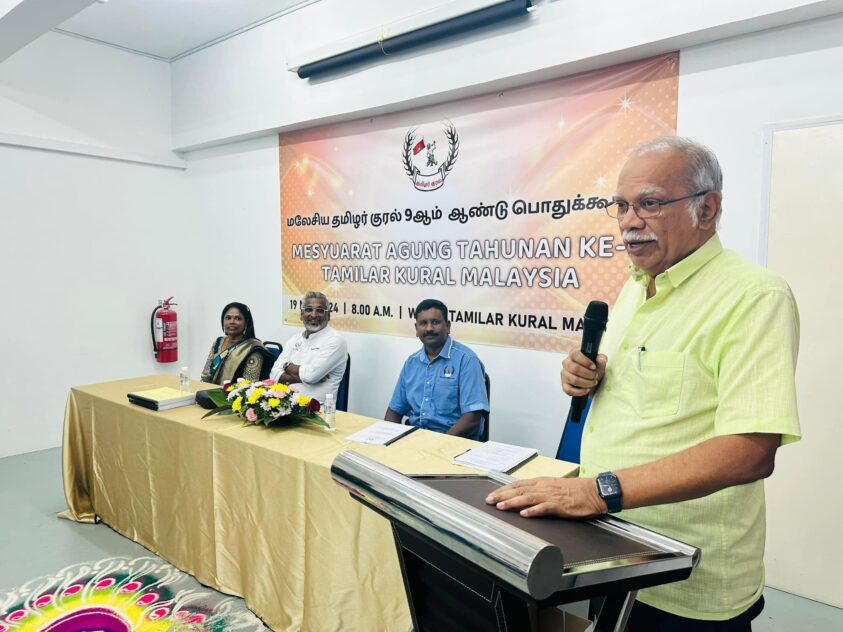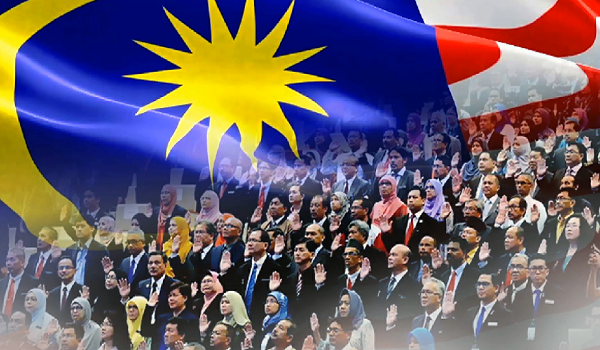THE claim by the Public Services Department (JPA) that civil servants are recruited based on merit is deeply flawed and a disservice to the principles of fairness and equality.
The ethnic composition of the civil service – 78% Malays, 5.4% Chinese, 3.4% Indians and the rest comprising Sabah and Sarawak natives – reflects a stark imbalance that cannot be dismissed.
While the government touts higher percentages of non-Malay applicants being accepted (eg 85% for Chinese, 65% for Indians and 54% for Orang Asli), these figures obscure the low overall intake of non-Malays.
After more than six decades of independence, the representation of Chinese and Indians in the civil service remains stagnant at 5% and 4%, excluding police and armed forces.
How can meritocracy be the basis of recruitment when the civil service remains overwhelmingly dominated by Malays?
This dominance is rooted in the ethnic consociational bargain struck during independence which gave Malays primacy in politics and administration while relegating non-Malays to economic and social spheres.
This imbalance persists, reinforced by political and institutional reluctance to address systemic discrimination.


Personal experience
In early 2023, while serving in the Penang state government, I urged Prime Minister Datuk Seri Anwar Ibrahim to address the lack of non-Malay representation in the civil service.
Unfortunately, my appeal was dismissed as a personal opinion since the DAP leadership did not raise it formally. Subsequently, I faced backlash from leaders in UMNO, PKR and Amanah with DAP remaining silent.
Even the DAP secretary-general and Transport Minister Anthony Loke Siew Fook hinted at disciplinary action against me, culminating in my exclusion from contesting the 2023 state elections.

This episode highlights a troubling trend: the DAP – once a vocal advocate for fairness – has grown complicit in systemic inequality.
Comparing this to MCA is an understatement; it may have become worse. The repeated argument that non-Malays are unwilling to join the civil service is a shallow excuse.
Given the racial barriers, limited career advancement and systemic bias against non-Malays, it is unsurprising that they are hesitant to join the civil service.
Political will crucial
Even those who join often find themselves relegated to subordinate roles with no realistic prospects of heading departments or ministries.
Rather than justifying the lack of diversity by questioning non-Malay merit or interest, the government must confront the undeniable reality: racial and religious discrimination has marginalised non-Malays in civil service recruitment and career progression.
This is an injustice that cannot be hidden under hollow claims of meritocracy. The government must acknowledge these historical wrongs and take decisive steps to address them.
Introducing a quota system for Chinese and Indian recruitment would be a meaningful start. However, this requires political courage – something the Madani government has yet to demonstrate.
If Malaysia is to progress as a united and equitable nation, racism in civil service recruitment and other sectors must be exposed and eradicated. Only then can the promise of a truly inclusive Malaysia be fulfilled. – Jan 9, 2025
Former DAP stalwart and Penang chief minister II Prof Ramasamy Palanisamy is chairman of the United Rights of Malaysian Party (Urimai) interim council.
The views expressed are solely of the author and do not necessarily reflect those of Focus Malaysia.









